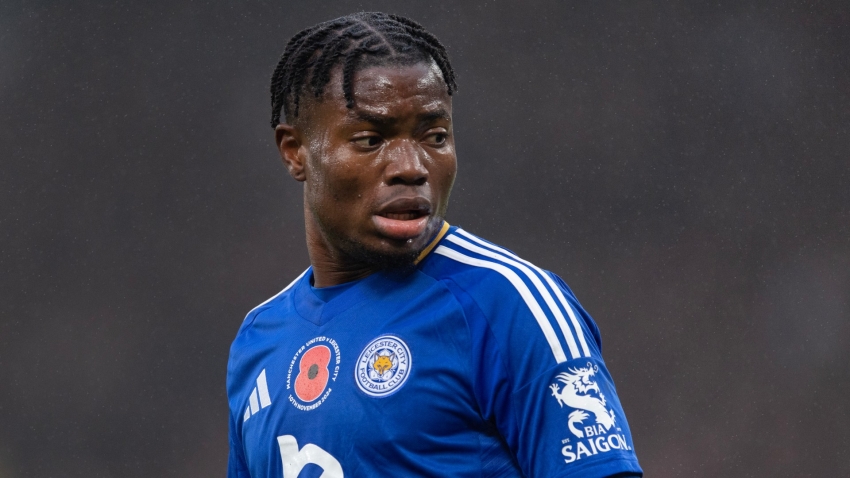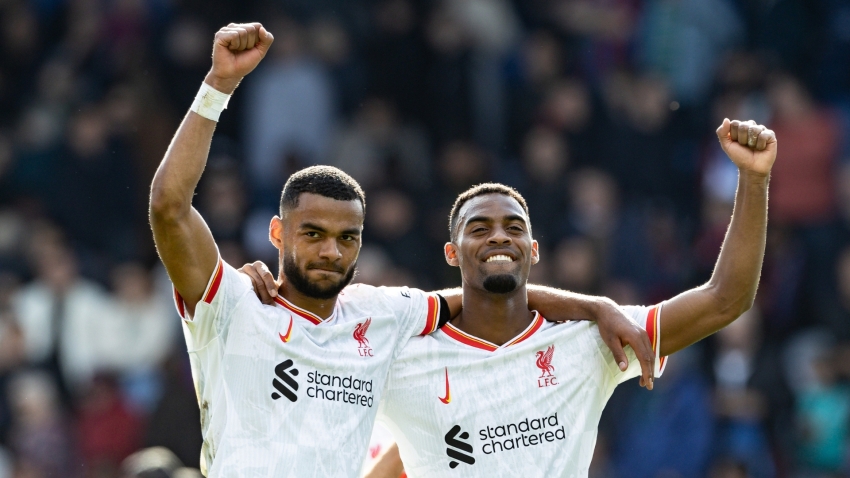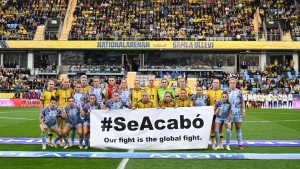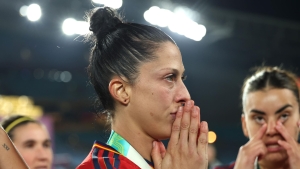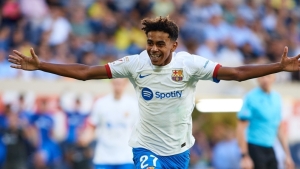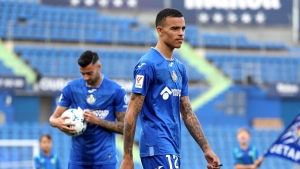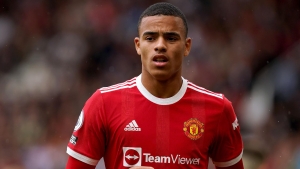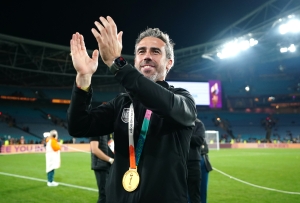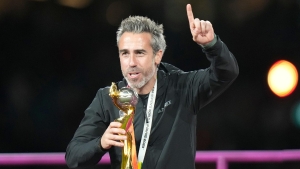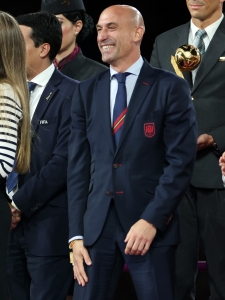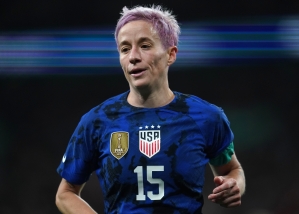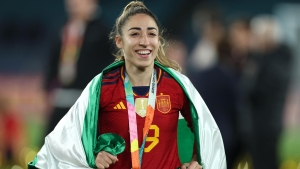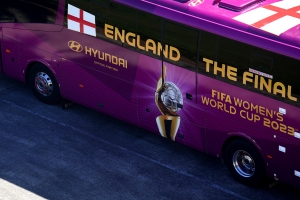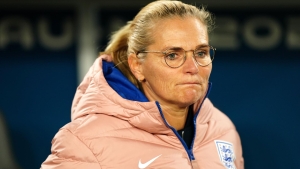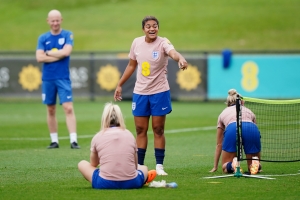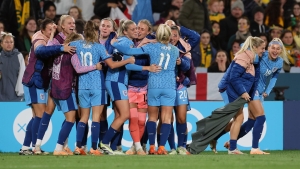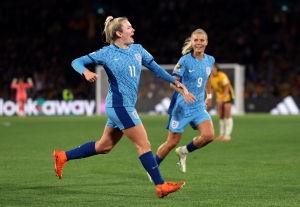Spain’s World Cup-winning coach Jorge Vilda has criticised suspended football federation president Luis Rubiales, calling the moment he kissed squad member Jenni Hermoso “inappropriate and unacceptable”.
Rubiales, the president of the Spanish Football Federation (RFEF), has been provisionally suspended by FIFA in the wake of kissing Hermoso on the lips while she collected her medal after Spain’s 1-0 final win over England in Sydney last Sunday.
Hermoso stressed on Friday she did not consent to the kiss and the fallout from incident continued on Saturday afternoon as Spain women’s coaching staff resigned en masse – with the exception of Vilda.
His name was conspicuously absent from the list of resignations, but he has now broken his silence on events.
In a statement published in Marca, Vilda said: “The events that have taken place since Spain won the Women’s World Cup for the first time in its history…have been a real nonsense and have generated an unprecedented situation, tarnishing a deserved triumph of our players and our country.
“I deeply regret that the victory of Spanish women’s football has been harmed by the inappropriate behaviour that our until now president, Luis Rubiales, has carried out and that he himself has acknowledged.
“There is no doubt that it is unacceptable and does not reflect at all the principles and values that I defend in my life, in sport in general and in football in particular.
“A clearly undesirable climate has been generated, far from what should have been a great celebration of Spanish sport and women’s sport.
“My work as the women’s national coach and sports director of the women’s national team has always been aimed at achieving sporting success, but also at promoting initiatives that promote inclusion, respect and equity.
“I reiterate my unwavering commitment to promoting a sport that is a model of equality and respect in our society.”
Spain assistant managers Montse Tome, Javier Lerga and Eugenio Gonzalo Martin were among those to have decided to stand down from their positions.
Physiotherapist Blanca Romero Moraleda and goalkeeper coach Carlos Sanchez, plus half a dozen others at several age-group levels, have also tendered their resignations.
A statement from the coaches said: “The undersigned express their firmest and most emphatic condemnation of the conduct shown by the president of the Spanish Football Federation.
“He offered a story that does not reflect in any way any of the feelings of Jenni Hermoso, who has expressly stated that she felt ‘victim of aggression’.
“The technical team supports the player Jennifer Hermoso, endorsing the version offered by her.
“In light of the unacceptable attitudes and statements made by the top leader of the RFEF, the undersigned have made the decision to relieve themselves of their duties.”
Rubiales has refused to resign from his post while the RFEF announced an intention to take legal action over the comments made by Hermoso on Friday.
The situation took a further twist on Saturday morning as FIFA, which opened disciplinary proceedings against Rubiales on Thursday, announced in a statement the 46-year-old official was banned “from all football-related activities at national and international level” for an initial period of 90 days.
Jorge Ivan Palacio, the chairman of the FIFA disciplinary committee, has ordered Rubiales and the RFEF to refrain from contacting or trying to contact Hermoso, either directly or through intermediaries.
Hermoso accused the RFEF of a “manipulative, hostile and controlling culture” as a total of 81 players signed a letter stating they will not accept national team call-ups while Rubiales remains in situ.
Rubiales also grabbed his crotch in celebration despite being just metres away from Spain’s Queen Letizia and her teenage daughter in the stadium VIP area.
Rubiales apologised for his behaviour in the VIP area but insisted in his speech on Friday he had been the target of a “social assassination” and repeatedly and emphatically stated “I will not resign”, words that drew applause from the gathered delegates at an extraordinary general assembly of the RFEF.
Rubiales claimed the incident was “spontaneous, mutual, euphoric and consensual” but Hermoso, who previously suggested comments playing down the incident attributed to her by the federation were false, hit back with an attack on the organisation as a whole.
“It is not up to me to evaluate communication and integrity practices, but I am sure that as the world champion national team we do not deserve such a manipulative, hostile and controlling culture,” she said in a statement on Twitter on Friday.
“I want to reinforce the position I took from the beginning, considering that I do not have to support the person who has committed this action against my will, without respecting me, at a historic moment for me and for women’s sport.”
Hermoso was quoted in a statement issued by Futpro, the players’ union representing her, as stating “in no case did I seek to raise (lift) the president”.
But the RFEF said on Saturday it has analysed four images of Hermoso and Rubiales embracing, claiming they show it was the former’s force that lifted him.
A statement said: “The RFEF announces the presentation of as many legal actions as may correspond in defence of the honourability of the president of the RFEF.
“In the union’s note, it is said to speak on behalf of Jennifer Hermoso and some statements by the player are attributed to her that are in quotation marks, implying that they have been pronounced by her.
“The RFEF wishes to inform public opinion that the competent bodies of the RFEF that are processing the complaints filed with the Federation have tried to contact Jennifer Hermoso, having been unsuccessful at all times.
“The RFEF and Mr President will demonstrate each of the lies that are spread either by someone on behalf of the player or, if applicable, by the player herself.
“The RFEF and the President, given the seriousness of the content of the press release from the Futpro Union, will initiate the corresponding legal actions.”










